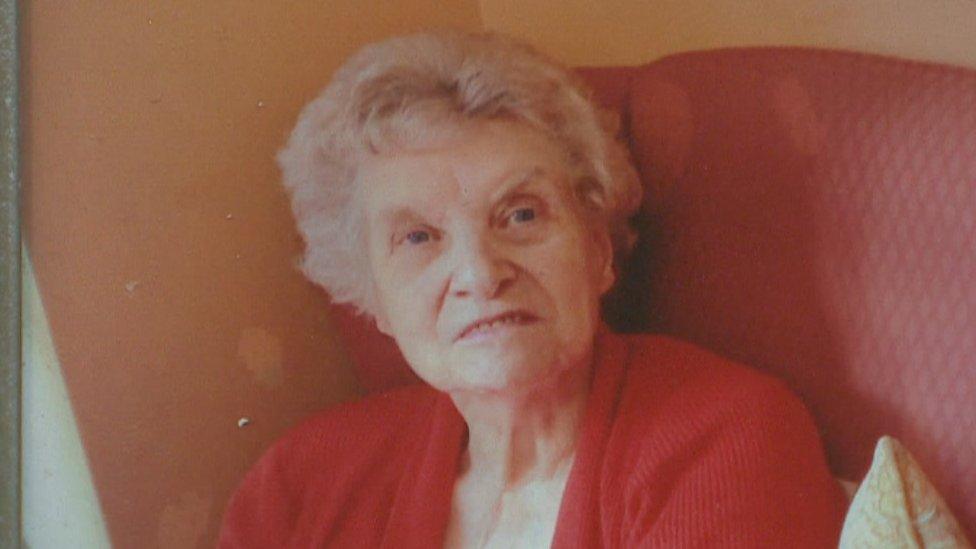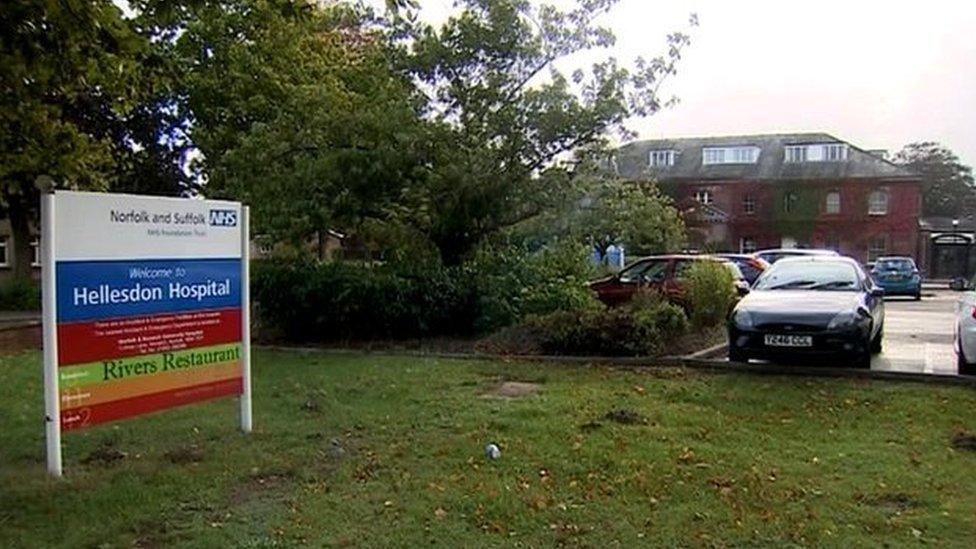M11 death: Peggy Copeman 'could only groan' before she died in a van
- Published

Peggy Copeman was being transported from Somerset to Norfolk when she died
An elderly patient who died while being transferred from Somerset to Norfolk in a Ford Transit van was so unresponsive she could only groan, an inquest heard.
Peggy Copeman, 81, died on the M11 hard shoulder on the Essex/Cambridgeshire border in December 2019.
Norfolk's senior coroner Jacqueline Lake has issued a prevention of future deaths report to the ambulance service.
The van driver told the inquest he thought at the time the journey should "not have gone ahead".
Rory McKenna, from the Taunton-based Premier Rescue Ambulance Service (PRSA), said he was surprised at Mrs Copeman's age when he picked her up from the Cygnet Hospital in Taunton.
"I was shocked at how old she was, as normally patients I collect are younger and spritely," he said.
Mrs Copeman, who was diagnosed with paranoid schizophrenia in the late 1960s, moved into a care home in Norfolk in 2014 after showing signs of dementia.
It had been decided she should be transferred to the specialist Cygnet Hospital on 12 December 2019 for further assessment.
Four days later, she was set to be transferred back to Norfolk after developing a water infection.
'So sorry'
Mr McKenna described how she was slumped in her wheelchair, with her chin on her chest.
He said: "She was asleep for the whole journey, but she would groan when you called her name."
Mr McKenna said before Mrs Copeman died, while they were still driving on the motorway, she started snoring.
He said Mrs Copeman made a noise so loud, he thought something was "caught under" the van.
Shortly afterwards he described how mucus started coming out of her nose and he was worried she had stopped breathing, so he "cut across traffic and pulled over onto the hard shoulder to check on her and called 999".
Mr McKenna said he was "so sorry this whole thing ever happened" and admitted he did not think he had adequate training to do the job.
'No defibrillator'
Trudy Nanyunja, who also worked for PRSA, accompanied Mrs Copeman in the back of the van and said she was told by Cygnet staff that Mrs Copeman was "acting up".
She said "no assessment was carried out as to the risk of transporting patients" by PRSA.
When they got to the hospital to pick her up, Ms Nanyunja said she was told Mrs Copeman "was asleep".
She says she tried to introduce herself to Mrs Copeman but she didn't respond so she was lifted into a seat into the back of the van by four staff from both Premier Rescue and Cygnet.
She was sitting, with her eyes closed, slumped forward between two staff.
Mrs Copeman had been diagnosed with a urinary tract infection two days previously and was still on a course of antibiotics.
Both members of staff had worked for the patient transfer company for less than three months.
They described how they did chest compressions in the back of the transit van but did not complete rescue breaths and said there was no defibrillator in the vehicle.
Earlier a paramedic had told the inquest "due to the position of Peggy in the back of the van, CPR was ineffective".
The inquest continues and is expected to conclude on Friday.

Find BBC News: East of England on Facebook, external, Instagram, external and Twitter, external. If you have a story suggestion email eastofenglandnews@bbc.co.uk, external
Related topics
- Published21 June 2021

- Published4 June 2021

- Published10 October 2020

- Published19 December 2019
